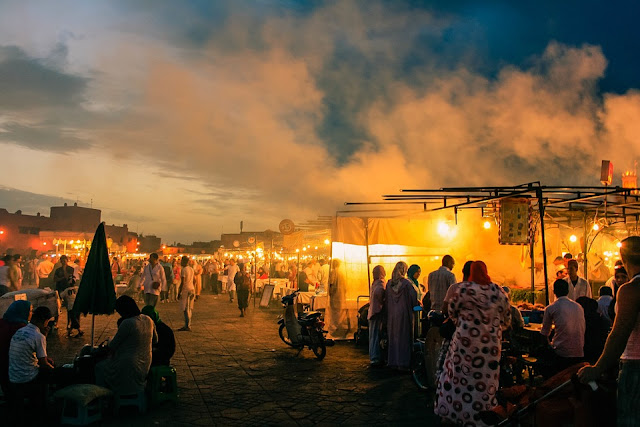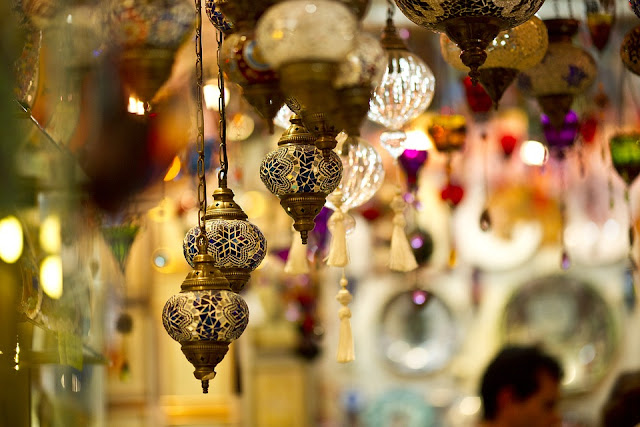Law of Selling on Sidewalks
We always ready (InshaAllah) for any revision in all our content.
if you find something (i.g. sentences) is wrong, please contact us, or write in the comment section below.
How is the law of selling on the sidewalk? Especially for street vendors ...
Answer:
Bismillah was shalatu was salam' ala Rasulillah, wa ba'du,
There are 3 things that need to be distinguished,
[1] Have / Own
[2] Mastering
[3] Utilizing
Not everything we have can be mastered, as not everything we control, we have/own it.
The example we have but we don't control is the house that we contract. The house is ours, but it is being controlled by the person who is contracting the house.
Examples that we have mastered but we do not have, pawn goods that we carry. This item belongs to the mortgaged person, even though as long as the collateral is in our place, we are the one who controls it.
Different from using. People can take advantage, even though they do not have, nor control. He can only use it.
State-owned public facilities, regulated by the government and used for the benefit of the people. So that everyone has the right to use it.
Ibn Qudamah explained,
وما كان من الشوارع والطرقات والرحاب بين العمران, فليس لأحد إحياؤه, سواء كان واسعا أو ضيقا, وسواء ضيق على الناس بذلك أو لم يضيق; لأن ذلك يشترك فيه المسلمون, وتتعلق به مصلحتهم, فأشبه مساجدهم.
Public roads, aisles, or fields in the middle of the city, there is no right for anyone to manage it (with planting). Both the place is wide and narrow. Neither bothering others nor disturbing. Because this place belongs to the Muslims together. So that its utilization is returned for their benefit, as is the mosque.
Then Ibn Qudamah asserted,
ويجوز الارتفاق بالقعود في الواسع من ذلك للبيع والشراء, على وجه لا يضيق على أحد, ولا يضر بالمارة; لاتفاق أهل الأمصار في جميع الأعصار على إقرار الناس على ذلك, من غير إنكار, ولأنه ارتفاق مباح من غير إضرار, فلم يمنع منه, كالاجتياز
And may use it by occupying large public places to buy and sell, as long as it does not interfere with others, and does not disturb road users. Because residents of various regions throughout the ages agree with the practice of the community in this problem, without any denial. And because this is a use that is mutable and not harmful, so it does not need to be banned as like the who people pass by.
Furthermore, Ibn Qudamah mentioned the statement of Imam Ahmad,
لل أحمد ، في السابق إلى دكاكين السوق غدوة: فهو له إلى الليل. وكان هذا في سوق المدينة فيما مضى
"The person who comes to the market early in the morning, he has the right to use it until night." And this happened in the Medina market in the past.
Among the arguments brought by Ibn Qudamah is the hadith from Ayesha Radhiallahu ' anha, she offered,
Yes, the Messenger of Allah, will we build for you a place in Mina for where you can take shelter and spend the night there?
Answer the Prophet sallallaahu 'alaihi wa sallam,
لَا مِنًى مُنَاخُ مَنْ سَبَقَ
"Don't ... Mina is a place to stay for people who arrive early. "
(Narrated by Tumudzi 881, Ibn Majah 3006, and abolished by Husain Salim ad-Darani).
We always ready (InshaAllah) for any revision in all our content.
if you find something (i.g. sentences) is wrong, please contact us, or write in the comment section below.
We always ready (InshaAllah) for any revision in all our content.
if you find something (i.g. sentences) is wrong, please contact us, or write in the comment section below.
He refused the offer, because all the areas of Mina were for the mutual benefit of the pilgrims. So that there cannot be a permanent building, which will control a portion of the public property.
From his explanation, he pointed out that limited to installing stalls in public places to sell not including mastering, but included in the category of use. And who is the first to occupy, he is the most entitled.
Furthermore, if he moves, NOT to others. If sold, it means that he controls the place without rights. see the explaination bellow :
Ibn Qudamah said,
والسابق أحق به ما دام فيه إ فإن قام وترك متاعه فيه ، لم يجز لغيره إزالته ل لأن يد الأول عليه ، وإن نقل متاعه ، كان لغيره أن يقعد فيه ؛ لأن يده قد زالت
The first person, he is the most entitled to the place, as long as he is there. If he leaves, but the items are still left behind, then other people should not move them. Because of the rights of the first person, they were still there. But if he moves the goods, then other people have the right to occupy them, because the rights of the first person are gone.
(al-Mughni, 5/426)
From the information above, we can conclude that some provisions sell in public places,
[1] The place is public property, not private property
[2] Who is the first, he is the most entitled to occupy and utilize the land
[3] Permanent buildings cannot be built. Make permanent buildings in public places, including forms of controlling public facilities.
[4] If the person who uses it leaves the place, but the item is still in that place, then he is more entitled to get it back.
[5] If the person using it leaves the following place carrying all the items, then another person has the right to use it.
[6] People who leave the place have no right to sell the place that they leave to others.
So, Hopefully useful.
Allahu a’lam.
Spend your few second to help our dawah with sharing our post, give us advise & suggestion. there are social media sharing button below
Share with Other.. be social. ;-)
May Allah reward our Deed in this world and hereafter
Billahi Fii Sabilil Haq Fastabiqul Khairat
This post Link (For references):
https://yourdakwah.blogspot.com/2018/10/the-law-of-selling-on-sidewalks.html
Read Also :



